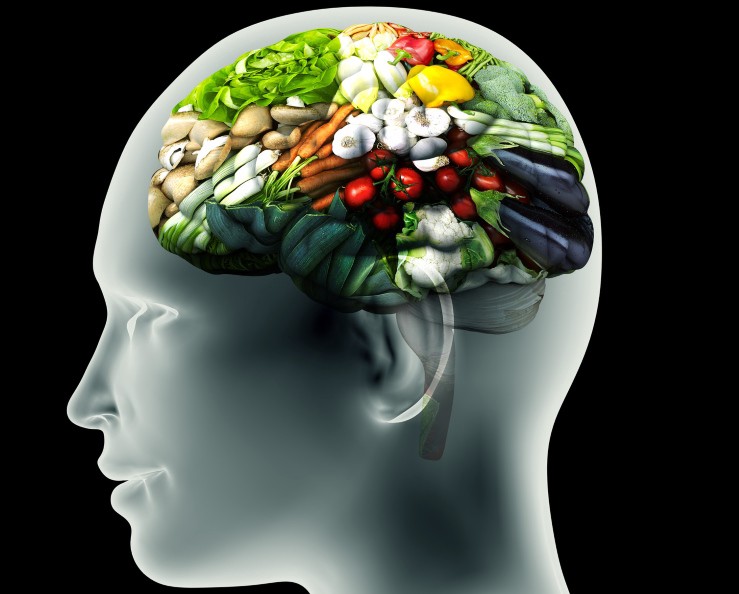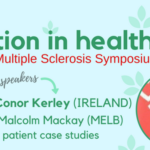
The Bottom Line
Cutting out saturated fat from animal foods has been shown to be the most successful treatment for MS according to Dr Roy Swank – and this includes ALL current medications and ALL invasive procedures.
The results he published (1., 2., 3., 4., 5., 6., 7., 8.) within his 170 peer-reviewed scientific papers “…remain the most effective treatment of multiple sclerosis ever reported in the peer review [medical] literature. In patients with early stage MS, 95% were without progression of their disease 34 years later after adopting his low-saturated fat dietary program. Even patients with initially advanced disease showed significant benefit. To date, no medication or invasive procedure has ever [even] come close to demonstrating such success.” (9.)
- Interferon Beta is the most commonly prescribed drug. Its ability to prevent or even delay long-term disability has not been conclusively proven. It can have unpleasant side-effects and can cost over £21,000 p.a. (15.)
- Mitoxantrone is a chemo drug that can cause irreversible heart damage and leukaemia as side-effects. (16.)
- At the ripe young age of 84, Dr Swank in his interview (10.) with Dr. John McDougall he said: “It seems possible to me that this could be a matter of food, because the further north you go the less vegetarian a life is led, and the more people are carnivores, you might say; they spend a lot more time eating meat.”
- MS patients treated by Dr. Swank who are still adhering to a low-saturated fat diet were followed up for over 50 years and the conclusion was that the study “…indicated that, in all probability, MS is caused largely by consumption of saturated animal fat.” (8.)
- The mechanism involved is thought to be related to saturated fats causing ‘sludging’ of the blood – clogging the tiny capillaries that serve the nervous system. “A single meal of sausage and eggs can stick our blood cells together like rolls of quarters. And, this kind of hyperaggregation can lead to a reduction in blood flow and oxygenation of our tissues…patients with MS that follow a diet with no more than 10 or 15 grams of saturated fat can expect to survive, and thrive, to a ripe old age. Of course, cutting out saturated fat completely might be better, given that, you know, heart disease is our #1 killer.” (11.)
- So, if cutting out animal-based saturated fat from the diet is so “stunningly impressive”, then why aren’t doctors, MS organisations and government health authorities promoting it rather than expensive alternatives that have not been shown to work as well and which can have negative side-effects? Really good question – the answer to this will appear in a future blog on Popular Paradigms that Might be Killing Us. In the meantime, you might find Prof. T Colin Campbell’s book “Whole: Rethinking the Science of Nutrition” (12.) an excellent exposé of what scientific/medical paradigms are and how they permeate our current thinking about nutrition and health.
- A one-year study (13.) by Dr John McDougall which aimed to show improvements in MRI scans of brain lesions characteristic of MS was inconclusive – partly because of the small number of test subjects; however, individuals on his fat-reduction program did see weight loss and reported feeling healthier. Further long-term studies are needed into the effects of diet on MS. However, Big Pharma is unlikely to invest the £millions needed for thorough diet-based research because there are no profits to be made from people being well without pharmaceutical intervention.
- As Conor Kerley, PhD says “While we wait for science to progress, based on consistent and extensive evidence, a whole foods, plant-based diet seems appropriate for those with MS or at risk of MS. As someone with MS, it is what I eat and what I recommend to my MS patients.” (14.)
If you come across research that sheds more light on this subject, please share it with us. Also, if you have experience of MS yourself or in relation to family or friends, your stories will be of interest to other readers.
Finally, if you or anyone else suffering from MS would like my help in creating a WFPB diet plan, please get in touch and I will do all I can to advise and assist in ensuring that we work together to achieve the optimal diet and lifestyle for health and wellbeing.
References
- R. L. Swank, B. B. Dugan. Effect of low saturated fat diet in early and late cases of multiple sclerosis. Lancet 1990 336(8706):37 – 39.
- Swank MS Foundation. 2009. Dr. Roy Laver Swank.
- R. L. Swank. Multiple sclerosis: Twenty years on low fat diet. Arch. Neurol. 1970 23(5):460 – 474.
- R. L. Swank. Treatment of multiple sclerosis with low-fat diet. AMA Arch Neurol Psychiatry. 1953 69(1):91-103.
- R. L. Swank. Multiple sclerosis; a correlation of its incidence with dietary fat. Am J Med Sci. 1950 Oct 220(4):421-430.
- Igarashi K, Tsuji M, Nishimura M, Horimoto M. Improvement of endothelium-dependent coronary vasodilation after a single LDL apheresis in patients with hypercholesterolemia. J Clin Apher. 2004;19(1):11-6.
- SWANK RL, LERSTAD O, STRØM A, BACKER J. Multiple sclerosis in rural Norway its geographic and occupational incidence in relation to nutrition. N Engl J Med. 1952 May 8;246(19):722-8.
- R. L. Swank, J. Goodwin. Review of MS patient survival on a Swank low saturated fat diet. Nutrition 2003 19(2):161 – 162.
- M. A. Kadoch. Is the treatment of multiple sclerosis headed in the wrong direction? Can J Neurol Sci 2012 39(3):405.
- Dr. Roy Swank interview with Dr. John McDougall
- Dr. Michael Greger: Video – Treating Multiple Sclerosis With The Swank MS Diet
- Prof. T Colin Campbell: Whole: Rethinking the Science of Nutrition.
- Dr. John McDougall: Diet & Multiple Sclerosis Study
- Dr Conor Kerley: Multiple Sclerosis & Plant-Based Nutrition
- Shirani A1, Zhao Y, Karim ME, Evans C, Kingwell E, van der Kop ML, Oger J, Gustafson P, Petkau J, Tremlett H. Jul 18;308(3):247-56. doi: 10.1001/jama.2012.7625. Association between use of interferon beta and progression of disability in patients with relapsing-remitting multiple sclerosis.
- Marriott JJ1, Miyasaki JM, Gronseth G, O’Connor PW; Therapeutics and Technology Assessment Subcommittee of the American Academy of Neurology.Neurology. 2010 May 4;74(18):1463-70. doi: 10.1212/WNL.0b013e3181dc1ae0. Evidence Report: The efficacy and safety of mitoxantrone (Novantrone) in the treatment of multiple sclerosis: Report of the Therapeutics and Technology Assessment Subcommittee of the American Academy of Neurology.

